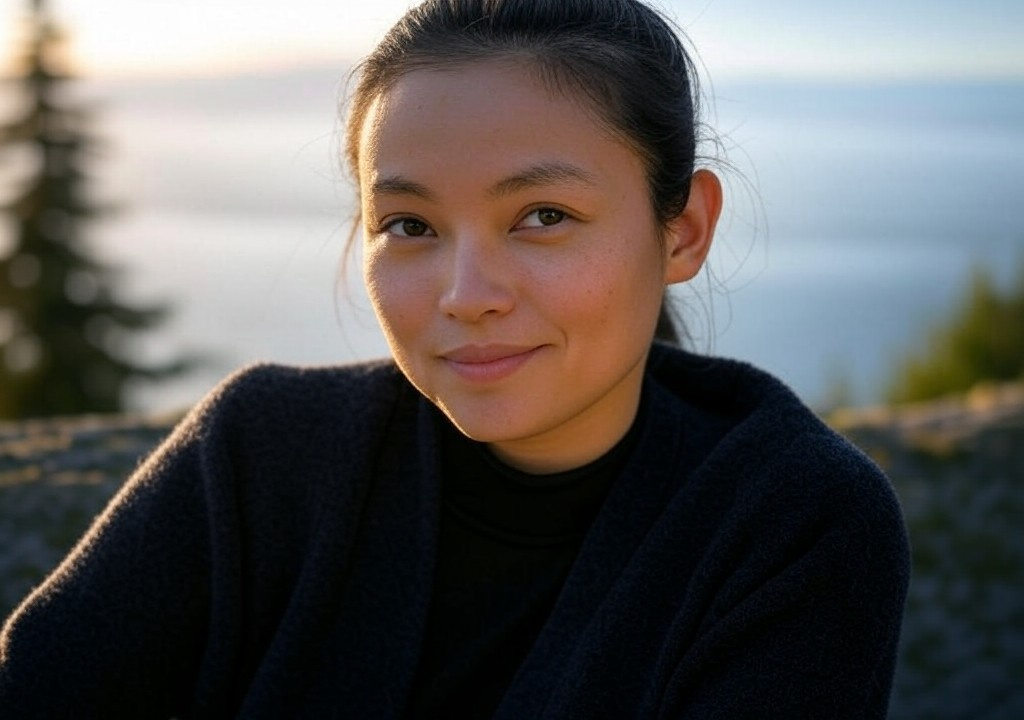“Do you ever feel like the odd crouton in a salad of kale? Not unwanted exactly, but kind of out of place?” That’s how I used to explain my quest to friends when I was in my early 20s. I was mostly joking because, let’s be real, who doesn’t love a good crouton? But that uneasy feeling of not quite fitting in has a way of following you—until you find your people.
For me, finding my "tribe" wasn't a straightforward road; it was more of a scenic detour peppered with awkward small talk, ghosted group chats, and a handful of gloriously serendipitous moments. Along the way, I learned that building your community is less of a perfect puzzle and more like assembling IKEA furniture: the vague instructions don’t always make sense, and you’ll probably end up with a few leftover screws. But when it finally comes together? Oh, it’s magic.
The Accidental Outsider: Feeling Adrift
Let’s start with Vancouver, my hometown. Kitsilano is beautiful—beaches, yoga mats, and oat-milk-everything. Growing up in my parents’ café, I was surrounded by a chorus of conversations about everything from city politics to the best way to make dumplings. On paper, it seemed like community was baked into the sourdough (gluten-free options available, of course). And yet, I often felt like I didn’t wholly belong in the world I was growing up in.
I was the kid who liked the library better than the playground, who was quietly journaling while classmates were hitting the mall. In high school, my international baccalaureate classes were full of ambitious, brilliant people, but I often felt like a supporting character in their storylines. I tried to go with the flow—going to the parties, wearing the right jeans (remember low-rise? I’m still recovering)—but it wasn’t me.
This feeling of “close but not quite” followed me into university. With endless clubs and events, they said it was the perfect time to meet your tribe. But have you ever tried walking into a room of strangers who already seem to have inside jokes? The vibe was always painfully similar to being the last one picked for dodgeball in PE.
Trying Too Hard: Lessons in Being Myself
In my early 20s, I decided the best way to force a sense of belonging was, well, to force it. I joined yoga collectives, book clubs, even a dragon boat team (fun fact: paddling in unison is infinitely harder than it looks). Each time, I hoped this would finally be it. And each time, I felt that familiar twinge of disconnection.
Looking back, I realize I was approaching community the same way people approach bad Tinder dates: by pretending to be someone I wasn’t. I said yes to things I didn’t love and put on a version of myself that I thought would be easier to get along with. But just like your friend who texts mid-date to “rescue” you, my true self was always waiting for me to hit the metaphorical eject button.
This all came to a head when I moved to Melbourne for that exchange year. Suddenly I didn’t even have the home-turf advantage—I was both metaphorically and literally lost every time I took the tram. There was no immediate safety net of “familiarity” to fall into, and it forced me to figure out who I actually was when I wasn’t trying to fit a mold. There, I started saying no to things I didn’t enjoy (RIP, my short-lived knitting phase) and yes to the ones I did—like spoken word nights, late-night chai by the Yarra River, and surf trips I was hilariously bad at.
The Key to Finding Your People
Melbourne taught me the most important thing about finding your people: it’s less about them and more about you. When you start living in a way that’s authentic to you—your quirks, passions, and all—you naturally gravitate toward those who get it.
Here’s what worked for me.
-
Dive into your interests unapologetically.
Love obscure indie bands because they use synth like nobody else? Hit up local shows, even if you have to go solo. Obsessed with pesto recipes? Join a community cooking class. When you lean into your passions, you’ll find others leaning in right beside you. -
Be OK with being vulnerable.
Community requires connection, and connection needs honesty. Some of the best friendships of my life started when I dared to admit something embarrassing, like the fact that I got lost every single time I walked to UBC’s library for an entire semester. Sharing your imperfections opens the door for others to show theirs, too. -
Show up consistently.
Your people aren't going to materialize overnight. It takes time and repetition. Go to that Tuesday craft night every week. Check in on that group chat without worrying if you’re annoying. Familiarity builds comfort, and comfort is where community thrives. -
Trust serendipity. Sometimes, your best community moments come when you least expect them. One summer in Tofino, I ended up chatting with someone at a tiny, sandy coffee cart while waiting out a rainstorm. That conversation turned into surf trips and a friendship that’s lasted years. Be open to letting chance steer the wheel.
But Wait, What If It’s Hard?
It’s normal to hit snags along the way. Some groups won’t click, and some people might fizzle out after the first hangout. That doesn’t mean you’re failing—it’s just part of the process. I like to think about friendships the way I think about waves on the West Coast: no two breaks are the same, but each one teaches you something. Stick with it.
Your People Are Waiting
Now, I’m not saying that finding your tribe will solve all your life’s problems—or that it’ll look the same for everyone. Some people thrive in massive, noisy friend groups; others do best with just a couple of ride-or-die pals. For me, finding my people has been about collecting moments: a late-night deep chat here, a shared belly laugh there, and a handful of “I see you”s.
Today, my community feels like the perfect, cobbled-together mixtape. It’s full of friends I met at Granville Island art festivals, houseplant-obsessed neighbors who trade pothos cuttings, and people I connected with through a Vancouver writing workshop. No, it’s not a picture-perfect Instagram group where we all brunch weekly in matching aesthetics. But it fits.
And so will yours. You don’t have to pretend to be someone you’re not or force a cosmic-level connection. Just take a deep breath, follow your quirks, and show up. Before you know it, you’ll go from feeling like a lone crouton to realizing you’ve been part of an accidental salad all along—a very delicious, imperfect one.




















